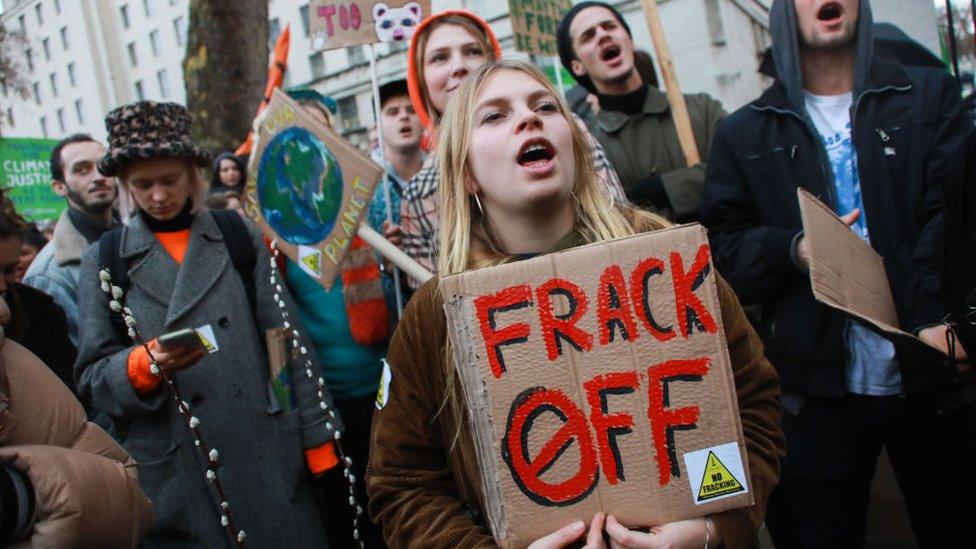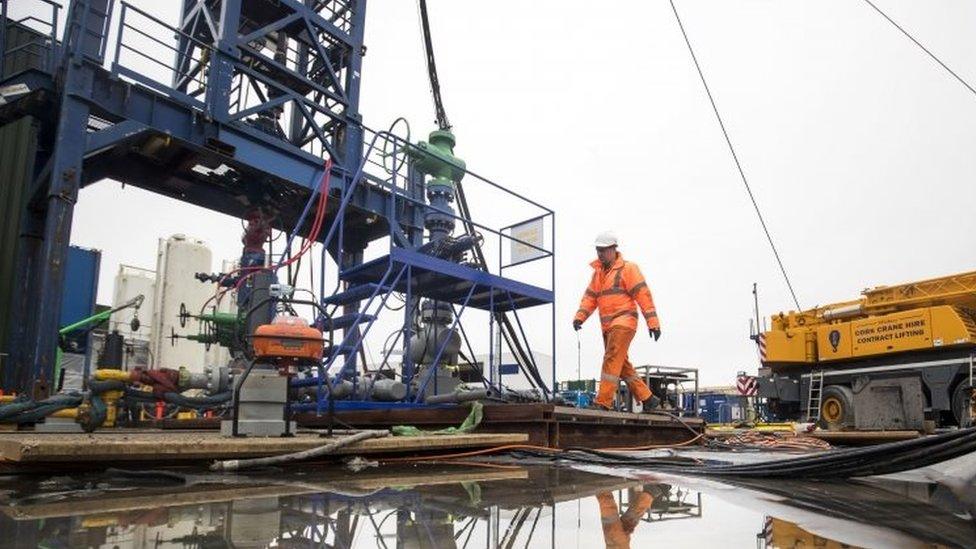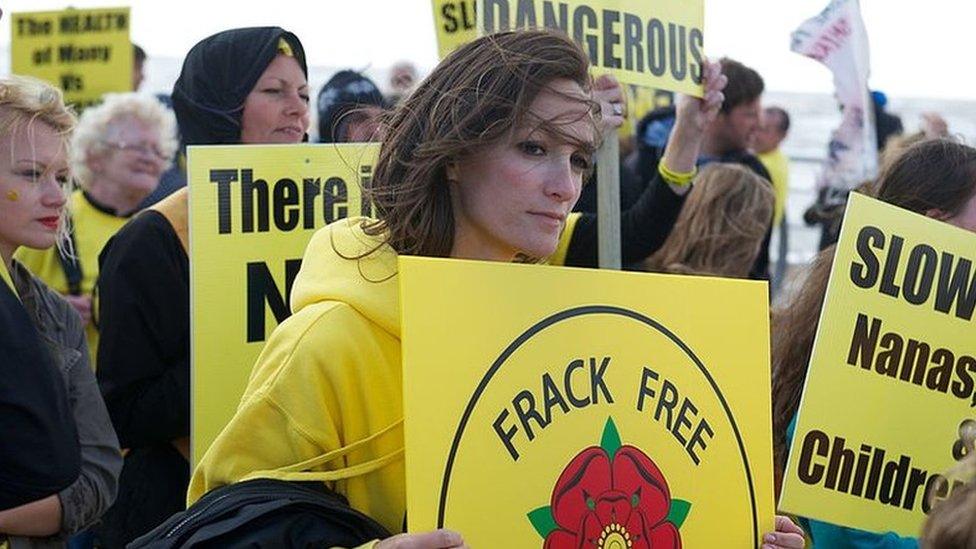Fracking: Government guidance 'unlawful' rules High Court
- Published

There have been protests against fracking activity in the UK
New government guidance on fracking is unlawful, the High Court has ruled.
Campaign group Talk Fracking argued that the government had not considered the latest scientific evidence when formulating its policy.
Ministers have been advising councils that gas from fracking in their area would help combat climate change.
But a judge found that the government had failed to consider the latest evidence.
Justice Dove ruled that "material from Talk Fracking, and in particular their scientific evidence as described in their consultation response, was never in fact considered relevant or taken into account" when formulating the revised policy.
He also ruled that the government had unlawfully failed to carry out a lawful public consultation when the policy was revised.
The judgment applies to England only.
Claire Stephenson, who brought the claim on behalf of Talk Fracking, said: "We are delighted that the court has agreed in part with our arguments that the government's policy on fracking is unlawful.
"The government have continually sought to ignore public opinion on fracking, despite the overwhelming opposition on a national level.
Planning guidance issued by the government, external last year says local councils should "recognise the benefits of on-shore oil and gas development ... for the security of energy supplies and supporting the transition to a low-carbon economy."
It adds that planning authorities should "put in place policies to facilitate their exploration and extraction."
Following the ruling, a spokeswoman from the Department of Housing, Communities and Local Government said: "We note the judgment in the case brought by Talk Fracking, and will now consider our next steps."
"Environmental protections are at the heart of our new planning rulebook, setting clear expectations for future development."
Scottish ministers are expected to set out their finalised policy on fracking in the coming weeks. A moratorium on the process has been in place in Scotland since 2015.

What is fracking?
Fracking is the process of drilling down into the Earth before a high-pressure water mixture is directed at the rock to release the gas inside.
Water, sand and chemicals are injected into the rock at high pressure which allows the gas to flow out to the head of the well.
Fracking allows drilling firms to access difficult-to-reach resources of oil and gas.
The government believes shale gas has the potential to provide the UK with "greater energy security, growth and jobs" and says it "could be an important part of our transition to a low carbon future".
But campaigners say fracking is distracting energy firms and governments from investing in renewable sources of energy.

Talk Fracking argued that ministers had failed to take into account the latest evidence which it said raised doubt over fracking's "low carbon" credentials.
Rowan Smith, solicitor from Leigh Day representing Talk Fracking, said: "What is clear from this judgment is that the Government has to keep climate change science under review when formulating fracking policies in an open and transparent way."
Analysis: Another setback for the government
By Roger Harrabin, BBC environment analyst
It's not clear what happens next on the issue, but it's certainly embarrassing for the government's local government department that put out the advice.
And it's another setback for ministers who have watched the popularity of fracking slide in the opinion polls.
Fracking in the UK is definitely potentially good for some things: the balance of payments, and tax revenues to the exchequer.
It's also a lower-carbon fuel than coal.
But this comparison is becoming increasingly irrelevant as coal is driven off the generating system.
- Published11 November 2018

- Published6 February 2019

